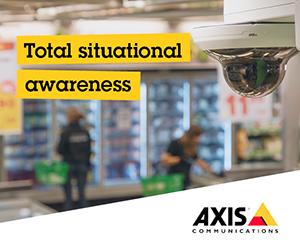retail environment
Walking the walk, but talking the ORC
Defining organised retail crime in Europe and the US.
According to Wikipedia, the orcs in Tolkien’s fantasy trilogy Lord of the Rings are “a race of creatures used as soldiers and henchmen by both the greater and lesser villains in the battle of good versus evil forces in Middle Earth.”
This is reputedly a simile of the impact of the industrial revolution on England’s green and pleasant lands and the rise and relentless march of fascism across Europe during the 1930s when it was written.
However, there is an interesting parallel with today’s definition of ORCs, organised retail criminals, who take a wide range of forms, from anonymously dark cyber-fraudsters operating offshore and off-jurisdiction to locust-like shoplifting “mules” blitzing major towns and cities of stock in their travelling wake.
Both carry out the industrial-scale theft from retailers as they either manipulate the ether as their weapon of choice or move in swathes up and down major route and road networks and crossing Police force boundaries with seeming impunity.
This is because the ORC forces are, as the name suggests, extremely organised, often using false identities and working on behalf of larger, anonymous criminal gangs linked to or funding other more serious offences including drugs, prostitution, people trafficking, and even terrorism.
ORC in the US
Although this type of crime happens across the world, the term ORC is restricted to the US where law enforcement and the criminal justice system has defined it and put resources behind what is a $30 billion dollar crime. According to a 2014 National Retail Federation (NRF) study, ORC impacted 88 per cent of retailers across the United States.
The NRF carries a powerful lobbying punch in the US where the problem of organised crime—largely drug related and entering and exiting via mules from south American countries such as Columbia—has been recognised since the 1990s, according to Professor Richard Hollinger, director of the Security Research Project at the University of Florida, a criminologist who has studied ORC over many years.
“It started with professional shoplifters and was originally called ORT, organised retail theft. The modus operandi was around states such as Florida where gangs would travel to and from countries including Columbia and stay in hotels using false identities, steal products on an industrial scale, and then ship the goods back via FedEx before leaving themselves. If caught, they would bail themselves out and disappear only to return at a later time, again with false papers.
“This still goes on, but the issue has become more sophisticated with items sold on online auction sites. Stores not giving refunds because of suspicious behaviour would then see a spike in gift card fraud as these too are sold online, so they become victims two times over.”
He said the issue is still dealt with state by state, but there were moves to federalise the offence so that it was no longer dealt with on a local and state level. His analysis is supported by the NRF study, which pointed out that more than a third of retailers saw a reduction in ORC in states where laws were in place to deal with it. There is also a more cross-agency approach to ORC.
“There is now also more of a national approach with help from the FBI, Immigration and Homeland Security. This could be a response to issues such as 9/11, where ORC is seen as feeding terrorism and those responsible are crossing international and state lines.”
ORC in Europe
Whereas in the US there is a move to recognise the issue nationally, no such uniformity exists in Europe, despite the same MOs and the fact that many of the criminals themselves originate in different parts of the continent. Firstly, there is no definition of ORC, and conversely, the Police forces are not connected and, in the main, do not share the kind of intelligence that could link the wider impact or highlight its complexity and sophistication.
For example, there is still little coordinated acknowledgement or action against organised retail cyber-crime, often from overseas servers, although the lead Police forces in the UK—the City of London Police and the Metropolitan Police—have initiatives in place (Action Fraud and Operation Falcon) to build a better picture of the scale of the problem and profile of the offenders.
As such, the response to date has failed to trigger more proportionate sentencing and reduced losses. Retailers remain burdened by time-consuming reporting to Action Fraud with little or no follow up of the crime, even when a significant fraud has taken place. Cases are filtered for action by the National Fraud Intelligence Bureau (NFIB) so that some will be prosecuted by an individual Police force, while most activity is focused upon Police disruption of cyber-crime networks. However, to date, very little intelligence traffic comes back to the retailers, although bulk reporting of such offences is now being piloted to speed up the flow of communication.
In the physical world, ORC is viewed as travelling crime with under-resourced and target-focused Police forces concentrating upon displacement or individual cases of shop theft that could result in a fine or fixed penalty notice.
At worst, it is viewed as low-priority shoplifting and in many areas is systematically decriminalised by poor or no Police response. In some instances store staff have been discouraged from reporting such incidents if they are “low value” or do not involve physical or verbal abuse.
Consequently, there are fewer arrests, and a culture of under-reporting has developed because demoralised store staff believe nothing will change. This is turn has resulted in an even lower Police response because the figures reveal that retail crime is down. In reality, the opposite is the case because the crimes were not reported in the first place.
Interestingly, there is no formal definition of organised retail crime in the UK or Europe. There is reference to travelling crime and gangs, but unlike the US, Europe has not lobbied for resources to tackle ORC in the same way.
This is contrary to the evidence. In the UK, the British Retail Consortium’s (BRC) crime survey 2014 said shoplifting, cyber-crime, and fraud are now at their highest rates since the current recording system began in 2004.
Although the volume of theft offences fell by 4 per cent, the BRC’s figures highlight 40 per cent of crime was carried out by organised gangs targeting more expensive items—electrical goods, designer clothes, power tools, and cosmetics—in bulk to sell online.
There is more than anecdotal evidence to suggest that many of the offenders originate in Eastern Europe and hit stores in many major UK cities over a six-month period before being replaced by another gang of mules, all of whom are sending the goods back to the countries of origin via courier services.
The National Business Crime Solution (NBCS), a not-for-profit crime-sharing platform funded by the retailers, is analysing data of criminal gangs coming in and out of the UK in tandem with Kent and Essex Police.
Alan Dann, partnership and crime reduction manager at Kent Police, said, “Different organisations know a small part of a fragmented intelligence picture, but the idea is to join the pieces together. We are scoping the project at the moment, but the NBCS will provide the intelligence and analytical work with other bodies including the Retail Security Network and the Metropolitan Police to understand the scale of problem and determine the next steps.”
This approach has been endorsed by Sue Fish, deputy chief constable for Nottingham Police and The National Police Chiefs Council, who said, “I think it’s fair to say that the public-private collaboration on intelligence, the NBCS, has now established itself as a credible partnership resource in the fight against organised crime. A year ago I was encouraging businesses to be lawfully audacious, to share their intelligence, and to collaborate on addressing business risk. We are now seeing the positive results for those who supported this request, and I would encourage those not yet participating to take the bold step their colleagues have and begin to share intelligence.”
Despite this, there is no literature about the scale of European ORC, although anecdotally, it is likely to reach into the tens of millions of euros, if the problem was acknowledged in the same way as it is in the US.
According to Robert Jennings, fraud and loss prevention director at Dixons Carphone, the issue has not been acknowledged. “We have lived in denial of ORC, but it has been going on for many years with shoplifting gangs stealing to order and selling items at car boot sales, for example. However, the problem has now morphed into a wider issue with gangs operating out of Eastern Europe and the industrial selling of stolen goods on online auction sites, which were the unintended consequences of advances in technology.
He said that although there was no official definition in Europe, there still needed to be a more joined-up approach to tackling the issue.
“If we know that 80 per cent of our losses is due to 20 per cent of organised criminal activity, we have a duty to make better use of the improved collaboration and sharing that is going on to create a strategy to fight it. At the moment, there is a lot of data floating around, but I see no strategy or real action.”
In the finale of Lord of the Rings, orcs are driven from Middle Earth by a disparate group of hobbits, elves, and goblins who ordinarily would not have given each other the time of day but came together at a time of adversity. Retailers across Europe are now better disposed to sharing non-competitive information, and Police are also bringing some focus to the problem through the studying of travel patterns of criminality. But with resourcing issues as they are, it seems that only a concerted effort, stronger retail partnerships, and extensive lobbying can deliver the killer blow of intelligence-led solutions to bring European ORC to heel.





